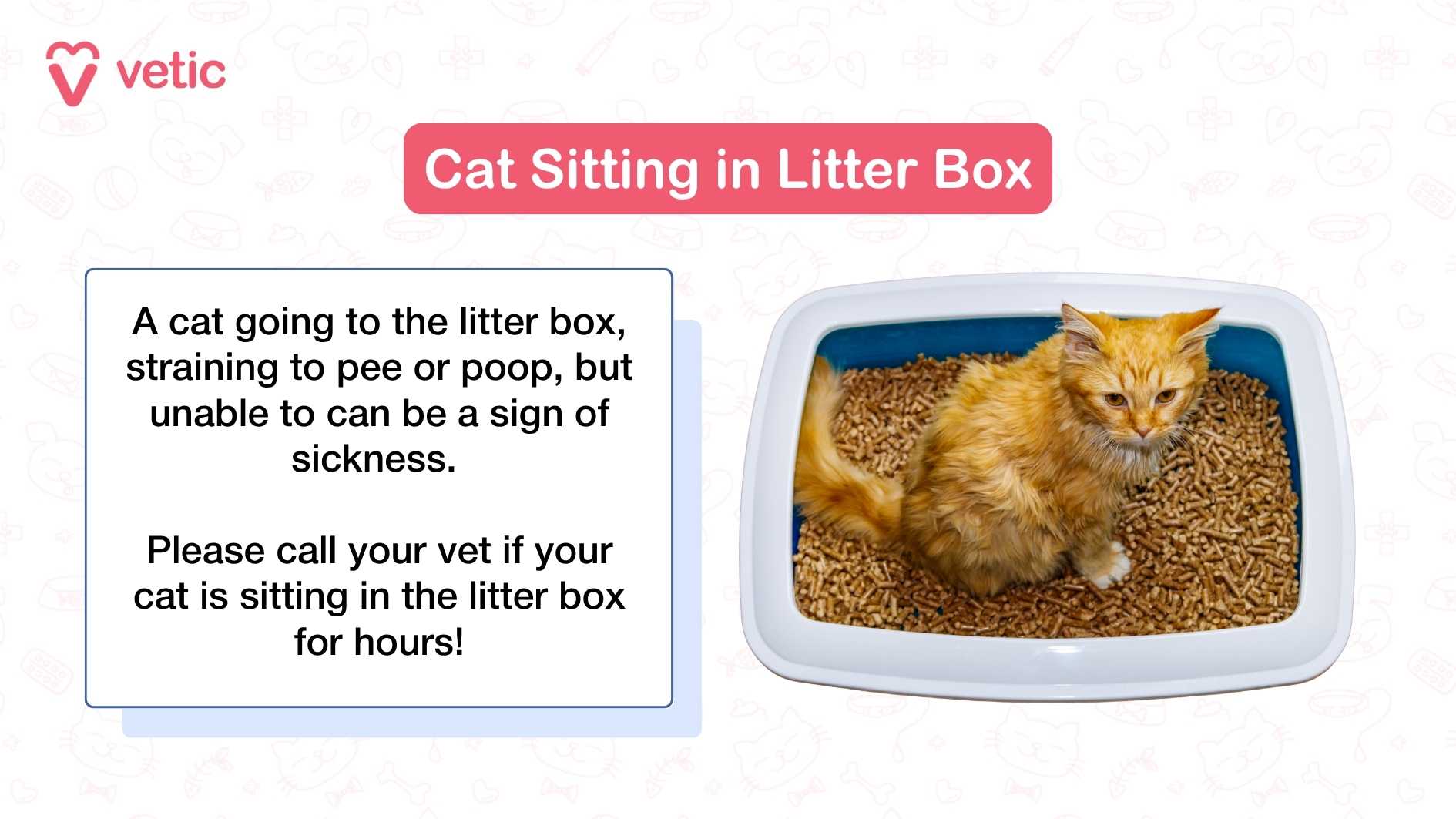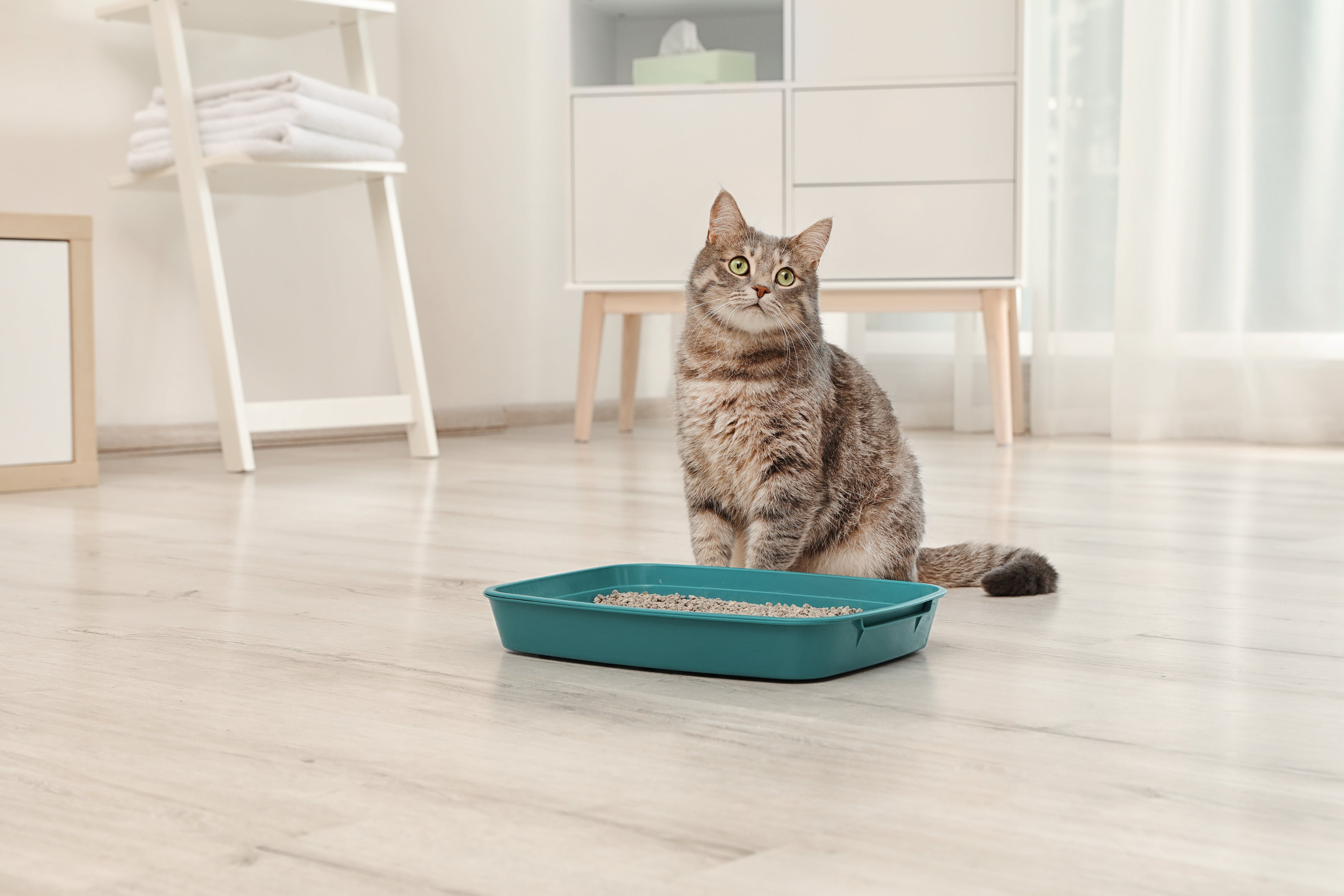Is your once perfectly litter trained cat suddenly peeing everywhere? You’re not alone, and it can be really frustrating.
When your cat ignores the litter box, it’s more than just a mess—it’s a sign that something might be wrong. Understanding why this happens can save you stress and help your furry friend feel comfortable again. Keep reading to discover the surprising reasons behind this behavior and how you can fix it quickly.

Credit: us.feliway.com
Common Reasons For Cat Peeing Outside Litter Box
Cats usually use the litter box without problems. When a litter-trained cat starts peeing outside the box, it can be confusing and frustrating. Understanding why this happens helps in finding the right solution. Several common reasons explain this behavior.
Health Problems
Illness can cause a cat to avoid the litter box. Urinary tract infections make peeing painful. Bladder stones and kidney issues also cause discomfort. Cats may associate the litter box with pain and avoid it. A visit to the vet can rule out medical problems.
Stress And Anxiety
Cats feel stress from changes at home. New pets, visitors, or moving can upset them. Stress can lead to urinating outside the litter box. Anxiety makes cats seek safe, quiet places to pee. Creating a calm environment helps reduce stress.
Litter Box Issues
Dirty litter boxes discourage use. Cats want a clean and quiet place to pee. The box may be too small or hard to access. Using the wrong type of litter also causes refusal. Regular cleaning and proper placement encourage use.
Territorial Marking
Unneutered cats often mark their territory with urine. This behavior is common in multi-cat homes. Marking leaves a scent to warn other cats. Neutering reduces the urge to mark. Providing enough litter boxes for each cat helps.

Credit: vetic.in
Identifying Medical Causes
Is your litter-trained cat suddenly peeing outside the box? It might be more than just a behavioral issue. Understanding the medical causes behind this change is crucial. Cats often communicate discomfort through their actions, so it’s essential to consider underlying health conditions. Let’s delve into some common medical reasons that could be causing your cat’s behavior.
Urinary Tract Infections
Urinary tract infections (UTIs) are a frequent culprit. They can cause pain and discomfort during urination, prompting your cat to avoid the litter box. You might notice your cat straining or meowing while trying to pee. If left untreated, UTIs can lead to more serious health issues.
Kidney Disease
Kidney disease is another potential cause. Cats with kidney issues often drink more water and urinate more frequently. This can lead to accidents outside the litter box. Regular vet check-ups can help detect kidney problems early, allowing for better management.
Diabetes
Diabetes in cats is increasingly common and can lead to increased thirst and urination. If your cat is suddenly drinking a lot more water, it’s worth discussing with your vet. Managing diabetes with diet and insulin can significantly improve your cat’s quality of life.
Bladder Stones
Bladder stones can cause irritation and blockage, leading to frequent urination or accidents. Symptoms may include blood in the urine or visible discomfort. An ultrasound or X-ray can help diagnose this condition, and treatment may involve dietary changes or surgery.
Have you noticed any of these symptoms in your cat? It’s crucial to consult with your veterinarian if your cat’s peeing habits have changed. Early intervention can prevent more serious health issues and help your cat feel comfortable again.
Behavioral Triggers
Behavioral triggers often cause litter trained cats to pee outside their box. Cats are sensitive to changes in their routine and surroundings. Stress or anxiety can make them avoid the litter box. Understanding these triggers helps solve the problem quickly.
Changes In Environment
Moving to a new home or rearranging furniture can confuse cats. They rely on familiar scents and places. Any change may cause stress and lead to accidents. Cats may mark new areas to feel safe.
New Pets Or Family Members
Introducing a new pet or baby can upset a cat’s balance. They may feel threatened or ignored. This stress can make them avoid the litter box. Cats use urination to express discomfort or claim space.
Inadequate Litter Box Maintenance
A dirty litter box is a common reason for accidents. Cats prefer clean spaces to do their business. If the box smells bad or is full, cats look for other spots. Regular cleaning keeps them comfortable and reduces peeing outside.
Litter Box Setup Tips
Setting up your cat’s litter box correctly plays a huge role in preventing accidents around the house. Even if your cat is well trained, a poor litter box setup can confuse or discourage them from using it. Let’s look at some key tips to get the setup just right and keep your home clean.
Choosing The Right Litter
Not all cat litter is created equal, and your cat’s preference matters more than you might think. Some cats dislike strong scents or dusty litters, which can make them avoid the box altogether.
Try unscented clumping litter with low dust as a starting point. If your cat seems hesitant, offer a few types side by side and watch their behavior closely. Would you want to use a litter that feels uncomfortable or smells too strong?
Box Size And Type
Your cat needs enough space to move around comfortably. A litter box that’s too small can frustrate them, causing accidents outside the box.
Choose a box at least 1.5 times the length of your cat’s body. Some cats prefer open boxes for easy access, while others like covered ones for privacy—observe what your cat prefers. Have you ever felt cramped in a tiny space? Your cat feels the same way.
Optimal Location
Where you place the litter box can make all the difference. Avoid busy or noisy areas where your cat might feel threatened or distracted.
Pick a quiet, low-traffic spot that offers privacy but is easy for your cat to reach. Avoid placing the box near food bowls or in damp, hard-to-access areas. Could your cat be avoiding the box because it’s in an inconvenient or stressful spot?
Cleaning Frequency
Cleanliness is key to encouraging your cat to use the litter box consistently. Cats are naturally clean animals and may avoid a dirty box.
Scoop out waste at least once a day and do a full litter change weekly. Wash the box with mild soap to remove odors without leaving harsh chemical smells. How often do you check your cat’s litter box? Making it a daily habit can save you a lot of stress later.
Managing Stress And Anxiety
Stress and anxiety often cause cats to urinate outside their litter box. This behavior is common in cats that are usually well trained. Stress can come from many sources like changes in the home, new pets, or loud noises. Managing your cat’s stress helps reduce unwanted urination. It also improves their overall health and happiness.
Creating A Safe Space
Provide a quiet, cozy area just for your cat. This space should have their bed, toys, and litter box. Make sure it is away from busy parts of the house. A safe space helps your cat feel calm and secure. Use soft blankets and keep the area clean.
Using Calming Products
Calming products can help ease your cat’s anxiety. These include pheromone diffusers, sprays, and collars. Pheromones mimic natural cat scents that reduce stress. You can also try herbal supplements made for cats. Always check with your vet before using new products.
Routine And Playtime
Keep a regular schedule for feeding and play. Cats feel safer with predictable routines. Playtime helps your cat release energy and stress. Use toys like feather wands or laser pointers. Spend at least 15 minutes playing with your cat daily.

Credit: animoetc.com
When To Visit The Vet
Noticing your litter-trained cat peeing everywhere can be frustrating and confusing. While behavioral issues might be the cause, health problems often play a significant role. Knowing when to visit the vet can save your cat from discomfort and prevent the problem from worsening.
Symptoms To Watch For
Keep an eye out for signs like frequent attempts to urinate, crying while peeing, or blood in the urine. Your cat may also lick its genital area excessively or seem lethargic and less interested in food.
If your cat suddenly stops using the litter box or urinates in unusual places, these are red flags. Don’t ignore changes in drinking habits or any vomiting, as they might signal underlying health issues.
Diagnostic Tests
The vet will likely start with a physical exam to check for pain or abnormalities. Urinalysis is essential to detect infections, crystals, or stones in the urinary tract.
Blood tests can reveal kidney function or other systemic problems. Sometimes, your vet may recommend X-rays or ultrasounds to look for bladder stones or tumors that could be causing the problem.
Treatment Options
Treatment depends on the diagnosis. If your cat has a urinary tract infection, antibiotics will be prescribed. For crystals or stones, dietary changes or surgery might be necessary.
Behavioral causes require a different approach, like environmental enrichment or stress reduction. Your vet can guide you on the best steps to help your cat feel comfortable and stop peeing outside the litter box.
Training And Reconditioning
Training and reconditioning your cat after it starts peeing outside the litter box can feel frustrating. However, understanding the right approach helps you guide your cat back to good habits. This phase focuses on patience, clear communication, and positive experiences to rebuild trust in the litter box.
Positive Reinforcement
Reward your cat immediately after it uses the litter box correctly. Treats, gentle petting, or soothing words can reinforce the behavior you want to see. Cats respond much better to encouragement than to scolding, making them more willing to repeat the desired action.
Think about a time you learned something new because you received praise—it sticks with you longer, right? Your cat’s brain works similarly, so positive reinforcement creates a strong connection between the litter box and good feelings.
Reintroducing The Litter Box
If your cat has stopped using the box, try placing them back in it gently and frequently. You can even try different types of litter or boxes to find what your cat prefers. Sometimes a clean, quiet, and easily accessible spot makes all the difference.
Place the litter box in a low-traffic area to make your cat feel safe while using it. You might also consider adding a second box in another room to give your cat more options. Have you noticed your cat’s preferences for certain textures or smells? Paying attention to these details helps a lot.
Avoiding Punishment
Never punish your cat for accidents outside the litter box. Punishment can increase stress and anxiety, making the problem worse. Instead, clean the area thoroughly to remove any scent markers that might encourage repeat accidents.
Ask yourself: how would you feel if you were scolded for a mistake you didn’t understand? Your cat feels the same. Focus on understanding the reasons behind the behavior and guiding your cat gently back to the right habits.
Cleaning Up Accidents
Cleaning up after your litter-trained cat pees outside the box can feel frustrating and exhausting. But the way you handle these accidents plays a crucial role in preventing your cat from repeating the behavior. A thorough and thoughtful cleanup can help erase the scent markers that encourage your cat to pee in the same spot again.
Effective Cleaning Products
Not all cleaning products work equally well on cat urine. Avoid ammonia-based cleaners because their smell can mimic urine and confuse your cat. Instead, choose enzyme-based cleaners designed to break down urine molecules completely.
These cleaners target the odor at its source rather than just masking it. Using such products ensures your cat won’t be tempted to return to the same spot. Keep these tips in mind:
- Blot up urine immediately with paper towels to prevent deep stains.
- Apply an enzyme cleaner generously and let it sit for the recommended time.
- Rinse and repeat if necessary to fully remove the scent.
Preventing Repeat Marking
After cleaning, think about why your cat chose that spot. Is it a quiet corner or near their food? Cats often mark places where they feel insecure or stressed. Changing the environment can help reduce the urge to mark again.
Consider these strategies:
- Place a litter box close to the accident area temporarily to encourage proper use.
- Make the area less attractive by covering it with a plastic sheet or aluminum foil.
- Spend extra playtime and attention to reduce stress and distract your cat.
Have you noticed if your cat’s accidents happen during changes at home? Identifying triggers can guide you to prevent future issues effectively.
Frequently Asked Questions
Why Is My Cat Suddenly Peeing Outside The Litter Box?
Cats may pee outside due to stress, illness, or litter box issues. Check for infections, clean the box regularly, and reduce stress triggers to help.
Can Medical Problems Cause Litter Trained Cats To Pee Everywhere?
Yes, urinary tract infections or kidney issues often cause accidents. Consult a vet to rule out health problems and get proper treatment.
How Can I Stop My Cat From Peeing Everywhere?
Ensure a clean litter box, provide enough boxes, reduce stress, and visit the vet. Behavioral changes and medical checks are key to solving this issue.
Does Litter Box Cleanliness Affect My Cat’s Peeing Habits?
Absolutely. Cats prefer clean litter boxes. Dirty boxes may cause them to pee elsewhere. Scoop daily and change litter regularly to encourage proper use.
Conclusion
A cat peeing outside the litter box can feel confusing and frustrating. Often, health issues or stress cause this change in behavior. Cleaning the area well and checking your cat’s health helps a lot. Giving your cat a quiet, clean space encourages good habits.
Patience and care make a big difference. Remember, your cat isn’t being naughty; it needs help. Understanding the reasons behind this behavior leads to better solutions. Keep trying, and your cat can return to using the litter box properly.

Lily Purrington is the founder of MyKittyPicks.com, a cozy corner of the web dedicated to helping cat lovers discover the best cat products, furniture, toys, and home decor ideas.
A lifelong cat enthusiast, Lily shares trusted tips, honest product recommendations, and stylish inspiration designed to keep kitties happy and homes beautiful.
Her mission is simple: to bring together practical advice and purr-fect picks that make life better for cats and the people who love them.







